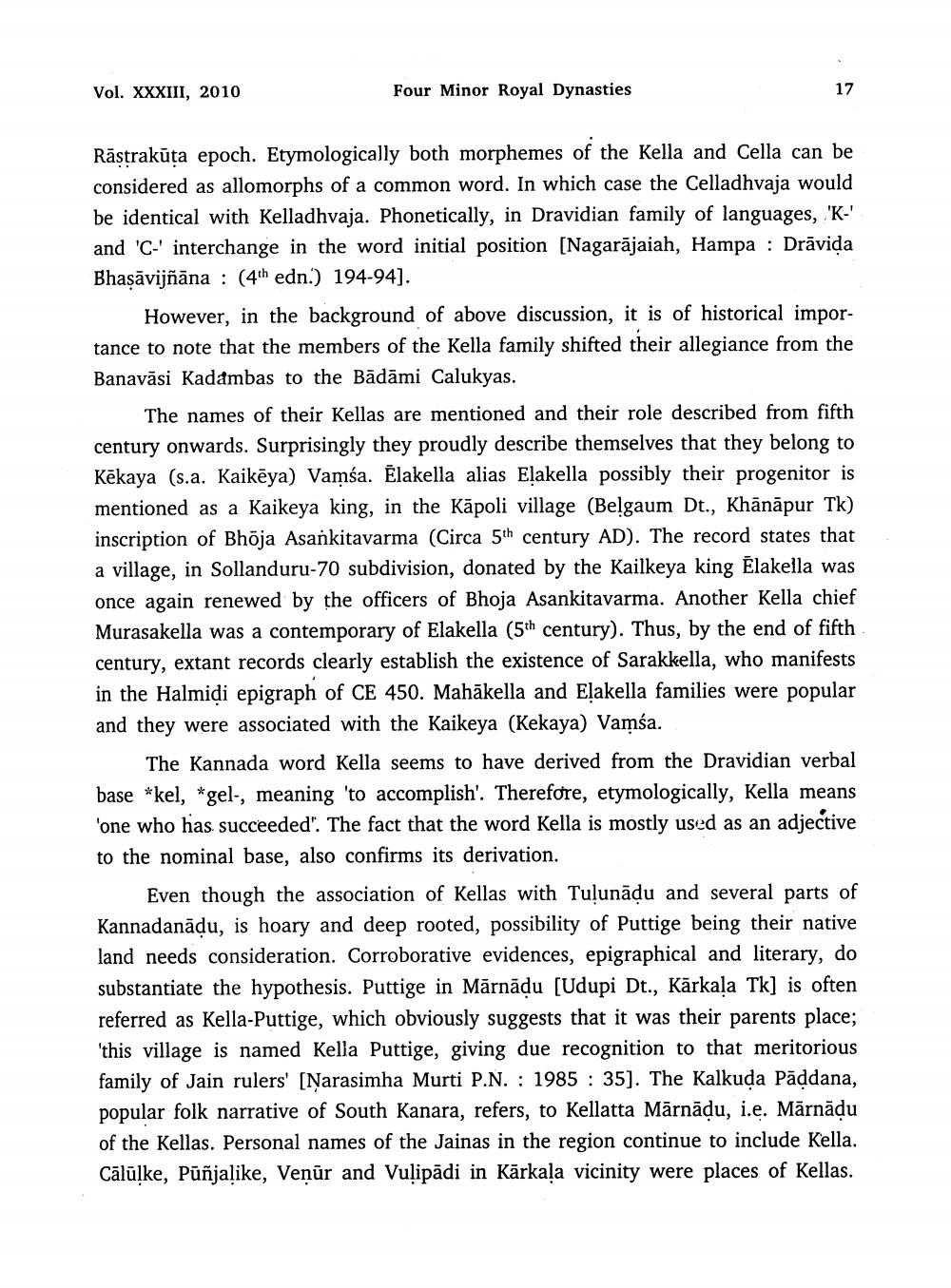________________
Vol. XXXIII, 2010
Four Minor Royal Dynasties
Rāstrakūta epoch. Etymologically both morphemes of the Kella and Cella can be considered as allomorphs of a common word. In which case the Celladhvaja would be identical with Kelladhvaja. Phonetically, in Dravidian family of languages, 'K' and 'C-' interchange in the word initial position [Nagarājaiah, Hampa : Drāvida Bhasāvijñāna : (4th edn.) 194-94).
However, in the background of above discussion, it is of historical importance to note that the members of the Kella family shifted their allegiance from the Banavāsi Kadambas to the Bādāmi Calukyas.
The names of their Kellas are mentioned and their role described from fifth century onwards. Surprisingly they proudly describe themselves that they belong to Kēkaya (s.a. Kaikēya) Vamsa. Elakella alias Elakella possibly their progenitor is mentioned as a Kaikeya king, in the Kāpoli village (Belgaum Dt., Khānāpur Tk) inscription of Bhõja Asankitavarma (Circa 5th century AD). The record states that a village, in Sollanduru-70 subdivision, donated by the Kailkeya king Ēlakella was once again renewed by the officers of Bhoja Asankitavarma. Another Kella chief Murasakella was a contemporary of Elakella (5th century). Thus, by the end of fifth century, extant records clearly establish the existence of Sarakkella, who manifests in the Halmidi epigraph of CE 450. Mahākella and Elakella families were popular and they were associated with the Kaikeya (Kekaya) Vamśa.
The Kannada word Kella seems to have derived from the Dravidian verbal base *kel, *gel-, meaning 'to accomplish'. Therefore, etymologically, Kella means 'one who has succeeded". The fact that the word Kella is mostly used as an adjective to the nominal base, also confirms its derivation.
Even though the association of Kellas with Tulunādu and several parts of Kannadanādu, is hoary and deep rooted, possibility of Puttige being their native land needs consideration. Corroborative evidences, epigraphical and literary, do substantiate the hypothesis. Puttige in Mārnādu (Udupi Dt., Kārkaļa Tk) is often referred as Kella-Puttige, which obviously suggests that it was their parents place; 'this village is named Kella Puttige, giving due recognition to that meritorious family of Jain rulers' [Narasimha Murti P.N.: 1985 : 35]. The Kalkuda Pāddana, popular folk narrative of South Kanara, refers, to Kellatta Mārnādu, i.e. Mārnādu of the Kellas. Personal names of the Jainas in the region continue to include Kella. Cālūlke, Pūñjalike, Venur and Vulipādi in Kārkala vicinity were places of Kellas.




